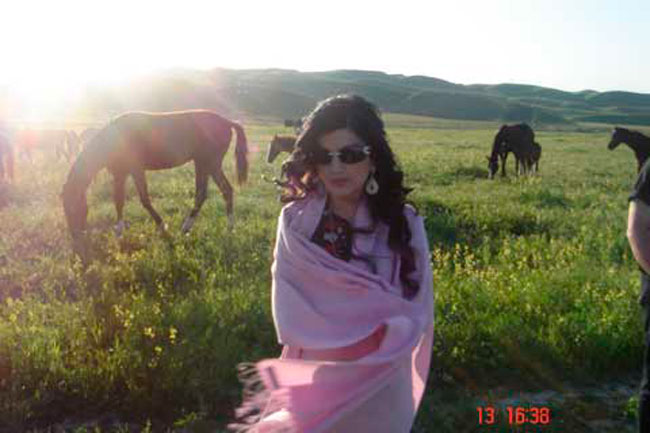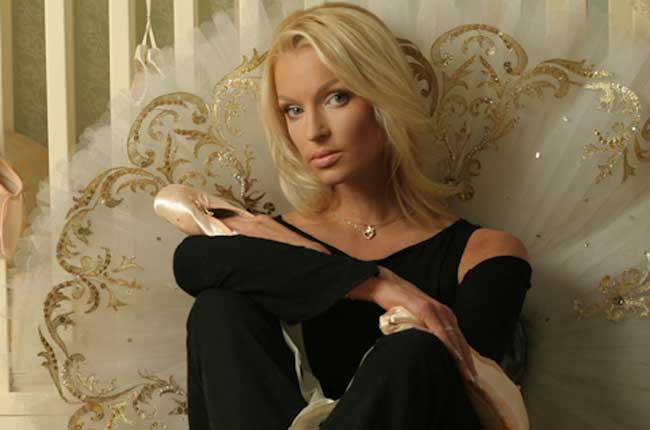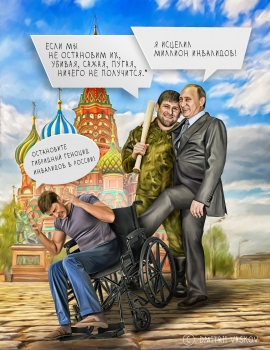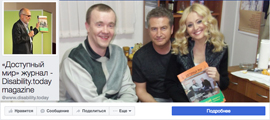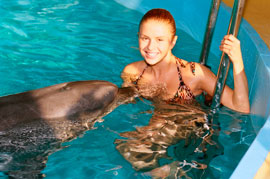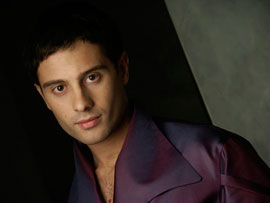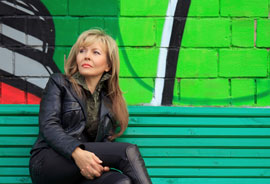Malu DREYER: My motto is “carpe diem” – seize the day!
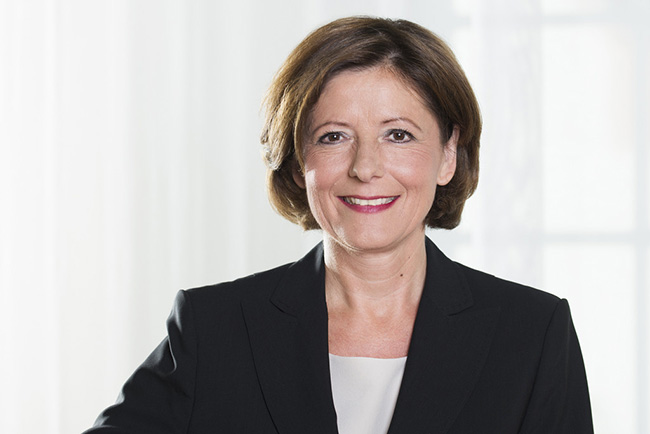
Malu DREYER the first female Minister President of Rhineland-Palatinate and the second female President of the Bundesrat for the DISABILLITY TODAY magazine.
DT: The concept of the Disability Today magazine which we are bringing to all our readers lies in the fact that the accessibility of our surroundings and tolerance of the society to the physically challenged peoples' problems are more important than subsidies and incentives.
Thereby, what do you consider necessary to be done in the society by politicians and ordinary citizens particularly in order that the attitude to the people, whom life has deprived of full physical abilities might become more tolerant
MD: As Prime Minister, the inclusion of people with disabilities is an important aspect of my policy. Physically and mentally challenged people are part of our society and their place is in the hearts and centres of our communities – from the very beginning. Rhineland-Palatinate is a forerunner when it comes to the issues of participation, equality and self-determination of disabled persons in political debates and actions. Inclusion is a task we have to master as a society. It can only succeed if we all strive to overcome physical and imaginary boundaries in our environment and in our heads. A good approach is to allow children to play and learn together, to educate them in one classroom. Inclusion in schools is a vital factor of my education policy.
DT: The second question to you is based on the fact that the Disability Today magazine highlights not only the problems of people with disabilities, but also many other aspects of tolerance such as inter-ethnic, inter-confessional, inter-party tolerance. A question to you, as a person whose opinion is listened to by a lot of people: What way of raising the level of political culture and tolerance of our politicians and bureaucrats is currently more effective in your opinion?
MD: In my opinion, tolerance is the precondition of each and every community. Diversity and individuality shape modern societies. A peaceful coexistence is only possible on the basis of tolerance. And I am convinced that society can only evolve, if it guarantees space for individuality and diversity. Unfortunately, this is not self-evident. In many countries all around the globe, people are discriminated against, stigmatized or marginalized on the basis of their disabilities, their origins, their religious beliefs, their attitudes or their sexual orientation. Very often these people experience violence due to their individuality. One of the most powerful instruments against discrimination and for more tolerance is education. It enables children and teenagers to widen their horizon and to strengthen their self-confidence. It also helps them understand and accept other forms of life or differing opinions. This is why I am convinced that it is most effective to support and build tolerance by educating children with different backgrounds and different physical abilities together.
DT: The third question is about overcoming. According to the tradition of the Disability Today magazine, famous people tell our readers about their personal experience of overcoming difficult and often tragic situations in their own lives. What helps you to overcome life’s difficulties?
MD: I have always been an optimist, a person with a very positive attitude towards life. My motto is “carpe diem” – seize the day. And that is what helps me overcome difficult situations in my own life. I have learned to live with my illness, multiple sclerosis, but I refuse to let it determine my life! I derive a lot of strength from my family and my position as Prime Minister.
DT: And in conclusion of our interview, I would like to ask you to encourage the readers of the Disability today magazine whose audience are not only people with disabilities but also numerous caring subscribers from Germany, Russia, the USA and many other countries.
MD: In my opinion, it is important to focus on your strengths and to develop your talents. Stay true to yourself. Do not limit yourself and, by all means, to not allow others to limit you!
Thereby, what do you consider necessary to be done in the society by politicians and ordinary citizens particularly in order that the attitude to the people, whom life has deprived of full physical abilities might become more tolerant
MD: As Prime Minister, the inclusion of people with disabilities is an important aspect of my policy. Physically and mentally challenged people are part of our society and their place is in the hearts and centres of our communities – from the very beginning. Rhineland-Palatinate is a forerunner when it comes to the issues of participation, equality and self-determination of disabled persons in political debates and actions. Inclusion is a task we have to master as a society. It can only succeed if we all strive to overcome physical and imaginary boundaries in our environment and in our heads. A good approach is to allow children to play and learn together, to educate them in one classroom. Inclusion in schools is a vital factor of my education policy.
DT: The second question to you is based on the fact that the Disability Today magazine highlights not only the problems of people with disabilities, but also many other aspects of tolerance such as inter-ethnic, inter-confessional, inter-party tolerance. A question to you, as a person whose opinion is listened to by a lot of people: What way of raising the level of political culture and tolerance of our politicians and bureaucrats is currently more effective in your opinion?
MD: In my opinion, tolerance is the precondition of each and every community. Diversity and individuality shape modern societies. A peaceful coexistence is only possible on the basis of tolerance. And I am convinced that society can only evolve, if it guarantees space for individuality and diversity. Unfortunately, this is not self-evident. In many countries all around the globe, people are discriminated against, stigmatized or marginalized on the basis of their disabilities, their origins, their religious beliefs, their attitudes or their sexual orientation. Very often these people experience violence due to their individuality. One of the most powerful instruments against discrimination and for more tolerance is education. It enables children and teenagers to widen their horizon and to strengthen their self-confidence. It also helps them understand and accept other forms of life or differing opinions. This is why I am convinced that it is most effective to support and build tolerance by educating children with different backgrounds and different physical abilities together.
DT: The third question is about overcoming. According to the tradition of the Disability Today magazine, famous people tell our readers about their personal experience of overcoming difficult and often tragic situations in their own lives. What helps you to overcome life’s difficulties?
MD: I have always been an optimist, a person with a very positive attitude towards life. My motto is “carpe diem” – seize the day. And that is what helps me overcome difficult situations in my own life. I have learned to live with my illness, multiple sclerosis, but I refuse to let it determine my life! I derive a lot of strength from my family and my position as Prime Minister.
DT: And in conclusion of our interview, I would like to ask you to encourage the readers of the Disability today magazine whose audience are not only people with disabilities but also numerous caring subscribers from Germany, Russia, the USA and many other countries.
MD: In my opinion, it is important to focus on your strengths and to develop your talents. Stay true to yourself. Do not limit yourself and, by all means, to not allow others to limit you!
